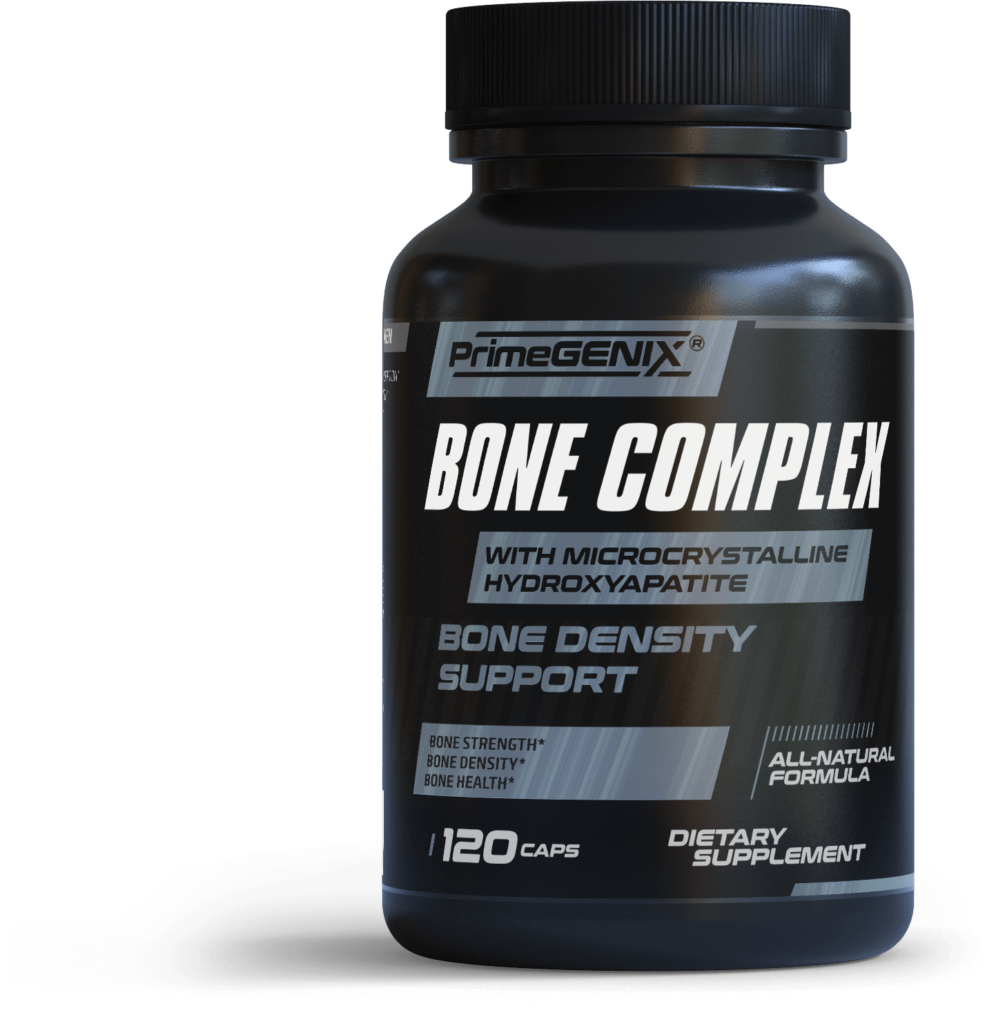Few elements play as pivotal a role in our bodies as calcium, a mineral primarily known for fortifying our skeletal system. Though a cornerstone of bone health, many of us don’t know there are different types of calcium, each with unique attributes.
As we navigate the calcium supplement market, it becomes evident that not all options are created equal. Various calcium types and supplements are available, and choosing the right one is crucial for bone fortification.
It’s more than knowing your calcium; it’s about understanding the dynamic interplay between different types and their unique contributions to strengthening our bones. Grasping the nuances of calcium supplements is critical, whether you’re a fitness enthusiast or aiming to reinforce your skeletal foundation.
This article explores the diverse landscape of calcium types, offering guidance toward the most informed choices that align with your lifestyle and health goals. We aim to unravel the intricate web of calcium options, demystifying the supplement market and steering clear of generic recommendations.
Join us as we dissect the science behind these essential minerals and their impact on bone health and strength.
Calcium’s Role in Bone Health
Understanding the significance of calcium in maintaining bone density is vital as we begin our journey. Calcium is fundamental to maintaining the structural integrity and strength of bones.
Nearly 99% of the body’s calcium is stored in the bones and teeth, giving essential support and rigidity. Calcium is also involved in critical physiological processes, like nerve transmission, blood clotting, and muscle function.
Imagine your bones as the architectural framework of a sturdy building. Calcium is the mortar that binds the structural components together, providing the robust support necessary for bone integrity.
When dietary intake is insufficient, the body draws from calcium stored in bones, weakening bone structure. Much like a well-maintained building, a body fortified with sufficient calcium stands sturdy and resilient, ensuring a solid foundation for a healthy and active life.
Ensuring an adequate supply of calcium through diet or supplements is crucial for sustaining bone density, particularly as we face increased risks of bone-related issues associated with aging.
Types of Calcium
While all calcium types contribute to bone health, it’s not a one-size-fits-all solution. The effectiveness of calcium in supporting bone strength varies across types.
Understanding their unique attributes and how they interact with the body and other minerals is paramount to choosing the right calcium type for your needs.
Let’s look at the diverse landscape of calcium types, examining the most effective calcium sources for optimal bone strength – Calcium Carbonate, Calcium Citrate, and Microcrystalline Calcium Hydroxyapatite (MCHC).
Calcium Carbonate
Calcium Carbonate is a widely available form of calcium, boasting a high concentration of elemental calcium. Its absorption rate is enhanced by stomach acid, making it a popular choice for supplementation, particularly for those with adequate gastric acidity. Individuals with conditions affecting stomach acid production may find it less effective.
Calcium Carbonate is a valuable source of calcium, contributing to skeletal strength, but it relies on other minerals for optimal absorption. For example, maintaining a balanced magnesium intake is crucial for supporting bone strength and enhancing Calcium Carbonate absorption.
Additionally, Calcium Carbonate’s efficacy can be influenced by its interaction with vitamin D. Ensuring sufficient magnesium and vitamin D levels is essential for optimizing absorption and promoting bone health.
Calcium Citrate
Calcium Citrate is renowned for its high bioavailability, making it easier for the body to absorb and utilize when ingested. While Calcium Carbonate depends on vitamin D for absorption, Calcium Citrate exhibits greater independence, making it suitable for diverse nutritional needs.
It’s an alternative form of calcium for individuals with reduced stomach acid since its absorption is independent of acidic conditions. Those with gastrointestinal concerns or those taking acid-reducing medications may find Calcium Citrate more suitable.
Calcium Citrate is a reliable source of calcium, contributing to bone density. Vitamin D and magnesium play critical roles in Calcium Citrate absorption, enhancing bone-strengthening benefits. Maintaining adequate vitamin D levels and a balanced magnesium intake helps maximize Calcium Citrate’s effectiveness in supporting bone health.

Microcrystalline Calcium Hydroxyapatite (MCHC)
Beyond the commonplace Calcium Carbonate and Citrate, Microcrystalline Calcium Hydroxyapatite (MCHC) is an often overlooked type of calcium. MCHC is derived from bone tissue, representing a comprehensive form of calcium that mimics the composition of human bones more closely than other types.
Its synergy with vitamin D and magnesium creates an optimal environment for efficient calcium absorption. When combined with adequate vitamin D levels, MCHC ensures a steady supply of calcium for bone mineralization.
Microcrystalline Calcium Hydroxyapatite’s natural blend provides a matrix of calcium, trace minerals, phosphorus, and other essential minerals inherent to bone structure. Its absorption and incorporation into bone tissue may enhance its efficacy compared to different types of calcium, making MCHC a compelling choice for those seeking optimal bone strength.
Choosing the Right Calcium for You
Selecting the right calcium supplement is pivotal for optimizing bone health. This decision shapes the foundation for strong skeletal integrity and overall well-being.
Weigh the advantages and drawbacks of each calcium type while remembering that personal considerations play a vital role. Consider factors such as your dietary preferences, age, lifestyle, and existing health conditions or medications that may impact calcium absorption.
What Affects Calcium Absorption?
Calcium absorption takes center stage as we examine various types of this essential mineral. Various factors dictate how efficiently our bodies utilize calcium and whether we can unlock the full potential of bone-strengthening benefits.
Understanding the factors that govern calcium absorption offers a roadmap toward informed dietary and supplementation choices. Now, let’s break down the contributing factors that collectively impact bone health.
Vitamin D
Vitamin D, often called the “sunshine vitamin,” facilitates calcium absorption in the small intestine. Dietary sources and supplements become vital when exposure to sunlight is limited. Maintaining adequate vitamin D levels is crucial for optimal calcium absorption and robust bone health.
Magnesium
Magnesium is the oft-unsung hero working in harmony with calcium. This mineral aids in vitamin D activation while playing the role of a silent partner in calcium absorption. The body may struggle to utilize calcium effectively without sufficient magnesium, underscoring the importance of a balanced intake of both minerals.
Phosphorus
The unique relationship between phosphorus and calcium deserves attention, as both are essential for bone health. An imbalanced ratio negatively impacts calcium absorption. Optimal bone strength depends on striking the proper equilibrium between these two minerals.
Stomach Acid
Stomach acidity influences the absorption of specific types of calcium differently. For instance, calcium carbonate requires ample stomach acid for optimal absorption, while calcium citrate and microcrystalline calcium hydroxyapatite are absorbed efficiently in both acidic and less acidic environments. Individuals with varying acid levels may find the latter more versatile.

Lifestyle Factors for Stronger Bones
Lifestyle is an active contributor to stronger bones. By incorporating the following lifestyle factors and considering supplementation, you can fortify your skeletal foundation for a healthier, more resilient future.
#1 Balanced Diet
A well-rounded diet with dairy products, leafy greens, and fortified cereals is the backbone for bone health. Ensure an adequate intake of calcium-rich foods and vitamin D sources, such as fatty fish, eggs, and mushrooms, to complement calcium absorption.
#2 Weight-Bearing Exercise
The dynamic interaction between muscles and bones strengthens the skeletal structure and improves bone health. Stimulate bone formation and enhance bone density with regular weight-bearing exercises like walking, running, and strength training.
#3 Adequate Hydration
Hydration supports overall health and is often overlooked in discussions about bone health. Staying adequately hydrated is crucial for joint lubrication and transporting essential nutrients for bone maintenance.
#4 Limit Bone-Depleting Substances
While enjoying an occasional drink or your daily cup of coffee is acceptable, avoid excessive intake of caffeine and alcohol, which can hinder calcium absorption. Moderation is vital for protecting bone density from these substances.
#5 Quit Smoking
Smoking interferes with calcium absorption, reducing bone mass. Quitting smoking reduces its detrimental effects on bone health, preserving bone density and skeletal resilience. Kicking the nicotine habit gives a direct boost to bone health.
#6 Fill Nutritional Gaps with Supplementation
Supplementation is a valuable option to bridge nutritional gaps. Ensure comprehensive support for bone health with calcium and vitamin D supplements tailored to your needs, health status, and lifestyle.

A Holistic Approach to Optimal Bone Strength
As we wrap up our exploration of the various calcium types, remember that the foundation of stronger bones is built on your calcium choices and lifestyle decisions. Embracing a holistic approach to enhancing bone health contributes to a resilient skeletal structure and a healthier you.
While Calcium Carbonate suits those with sufficient stomach acid and Calcium Citrate is more ideal for individuals with reduced acidity, Microcrystalline Calcium Hydroxyapatite (MCHC) stands as a noteworthy form of calcium for boosting bone strength.
Consider addressing potential nutritional gaps by supplementing with PrimeGENIX® Bone Complex, a comprehensive bone-fortifying system with MCHC, vitamins C and D3, phosphorus, and magnesium.
Take the first steps to stronger bones and a thriving future by making informed decisions, embracing a balanced lifestyle, and incorporating personalized bone health solutions.

